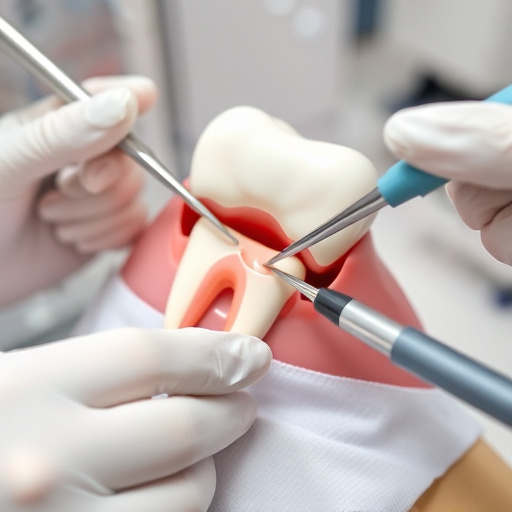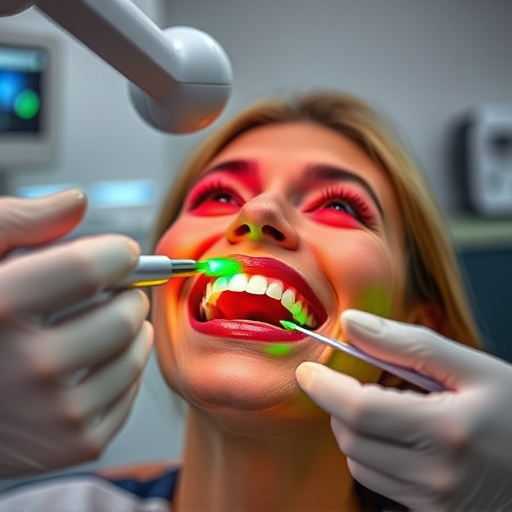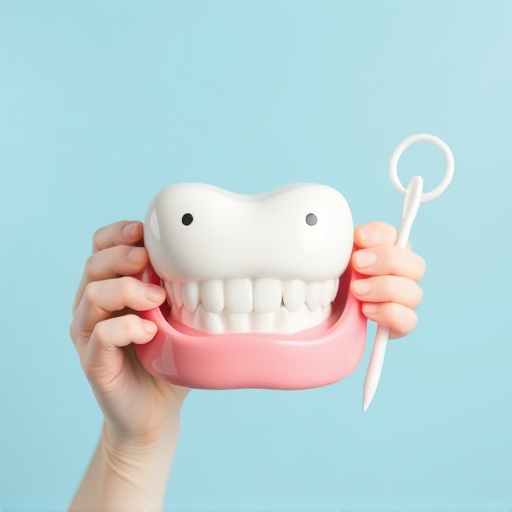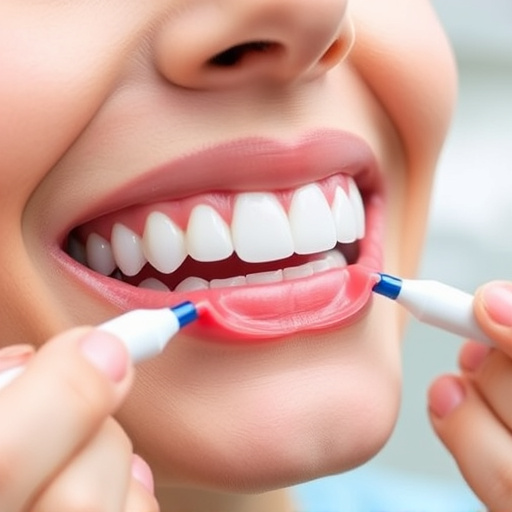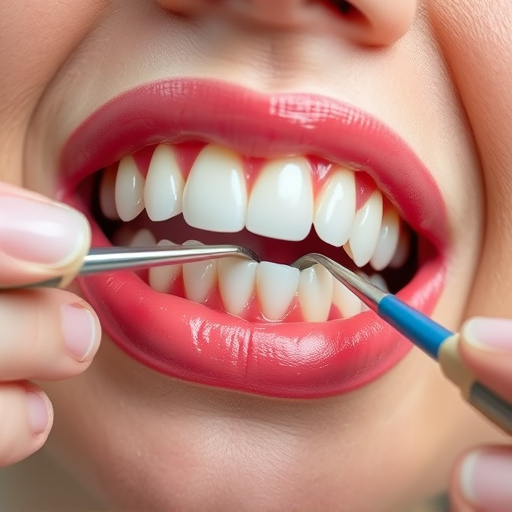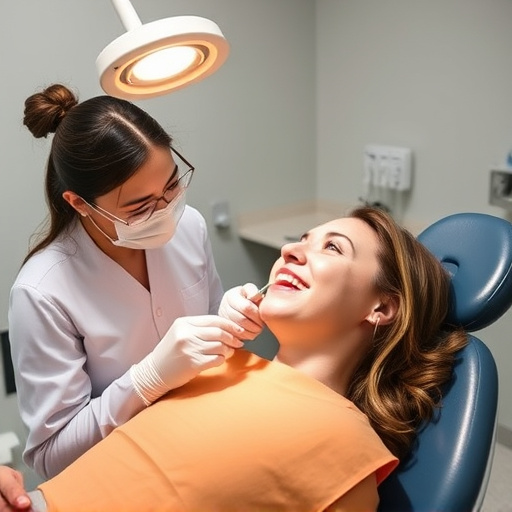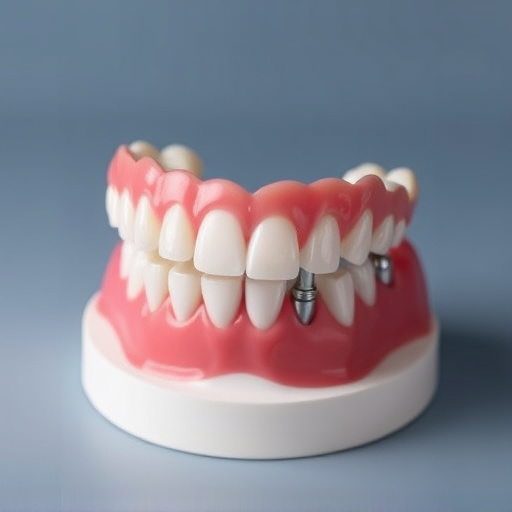Wisdom teeth removal, usually between 17-25 years old, prevents pain, swelling, infection, and serious complications like cysts or gum disease. Safety in surgery includes dental cleanings, X-rays, local anesthesia, and sterile techniques. Post-op care involves rest, ice packs, gentle hygiene, hydration, and a soft diet to promote healing while minimizing discomfort. Regular check-ins ensure positive recovery.
“Wisdom teeth, often causing discomfort and potential health issues for teens, may require safe and effective extraction. This article guides parents and teens through the process, addressing key considerations. We explore when wisdom tooth extraction is necessary, delving into modern safety measures specific to teen patients. Additionally, post-operative care strategies ensure a comfortable recovery. By understanding these steps, parents can support their teens in navigating this important dental procedure, known as wisdom teeth removal.”
- Understanding Wisdom Teeth: When Extraction is Necessary
- The Safety Measures for Teen Patients During Removal Surgery
- Post-Operative Care: Ensuring a Comfortable Recovery for Teens
Understanding Wisdom Teeth: When Extraction is Necessary

Wisdom teeth, also known as third molars, typically begin to erupt between the ages of 17 and 25. While some individuals may have them come in fully or not at all, others might experience partial eruption, where only a portion of the tooth is visible above the gumline. This can create several issues for teens. If wisdom teeth are aligned properly and do not cause discomfort or other problems, they can remain in place. However, when they become impacted—growth that obstructs other teeth or causes pain, swelling, or infection—removal is necessary. Impaction can lead to cysts, tumors, damage to adjacent teeth, or gum disease if left untreated.
In teens, wisdom teeth extraction is often considered a preventive measure in restorative dentistry. It can help avoid future complications and maintain oral health. During an initial consultation, dental professionals will assess the position of the wisdom teeth using X-rays. If extraction is recommended, patients can expect a relatively straightforward procedure involving local anesthesia to numb the area. In some cases, a surgical approach may be required for complex impactions, but modern techniques and advanced anesthetics ensure patient comfort during recovery.
The Safety Measures for Teen Patients During Removal Surgery
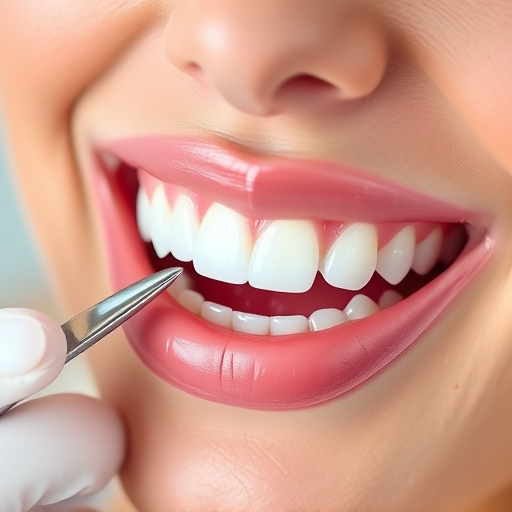
During wisdom teeth removal surgery for teens, safety is paramount. Dental professionals take several meticulous steps to ensure a secure and pain-free experience. Firstly, they conduct comprehensive dental cleanings to assess the teeth and surrounding areas. This involves removing any plaque or tartar buildup, which can complicate the procedure. Additionally, advanced imaging technology like X-rays helps in accurately planning the extraction, minimizing risks associated with unexpected complications.
The surgical team employs sterile techniques throughout the process, using single-use instruments to prevent infection. They also employ local anesthetics to numb the area around the wisdom teeth, ensuring the patient’s comfort and minimizing pain during the procedure. Moreover, they closely monitor vital signs like heart rate and blood pressure during surgery, allowing them to quickly respond to any changes, enhancing overall safety.
Post-Operative Care: Ensuring a Comfortable Recovery for Teens

After wisdom teeth removal, proper post-operative care is essential for a comfortable recovery. Teen patients should be instructed to rest and apply ice packs to reduce swelling and discomfort. Maintaining good oral hygiene is crucial during this time; gentle cleaning around the extraction sites and using a soft brush or cloth helps prevent infection. Staying hydrated and following a soft diet for the first few days is recommended.
Additionally, teens should be aware of potential symptoms like mild pain, bleeding, or bruising, which are normal. They can take over-the-counter pain relievers as directed by their dentist to manage discomfort. It’s also important to avoid spicy or sugary foods that might irritate the extraction sites and delay healing. Regular check-ins with the dental team for follow-up appointments ensure any concerns are addressed promptly, fostering a positive experience in preventive dentistry and promoting proper care after tooth extractions.
Wisdom teeth removal for teens can be a straightforward process, offering significant relief from pain and potential complications. By understanding when extraction is necessary and implementing safe surgical practices, healthcare providers can ensure a comfortable recovery for young patients. Proper post-operative care plays a crucial role in managing discomfort and promoting faster healing, enabling teens to return to their active lifestyles with minimal disruption. This comprehensive approach to wisdom teeth removal guarantees peace of mind for both patients and parents alike.
